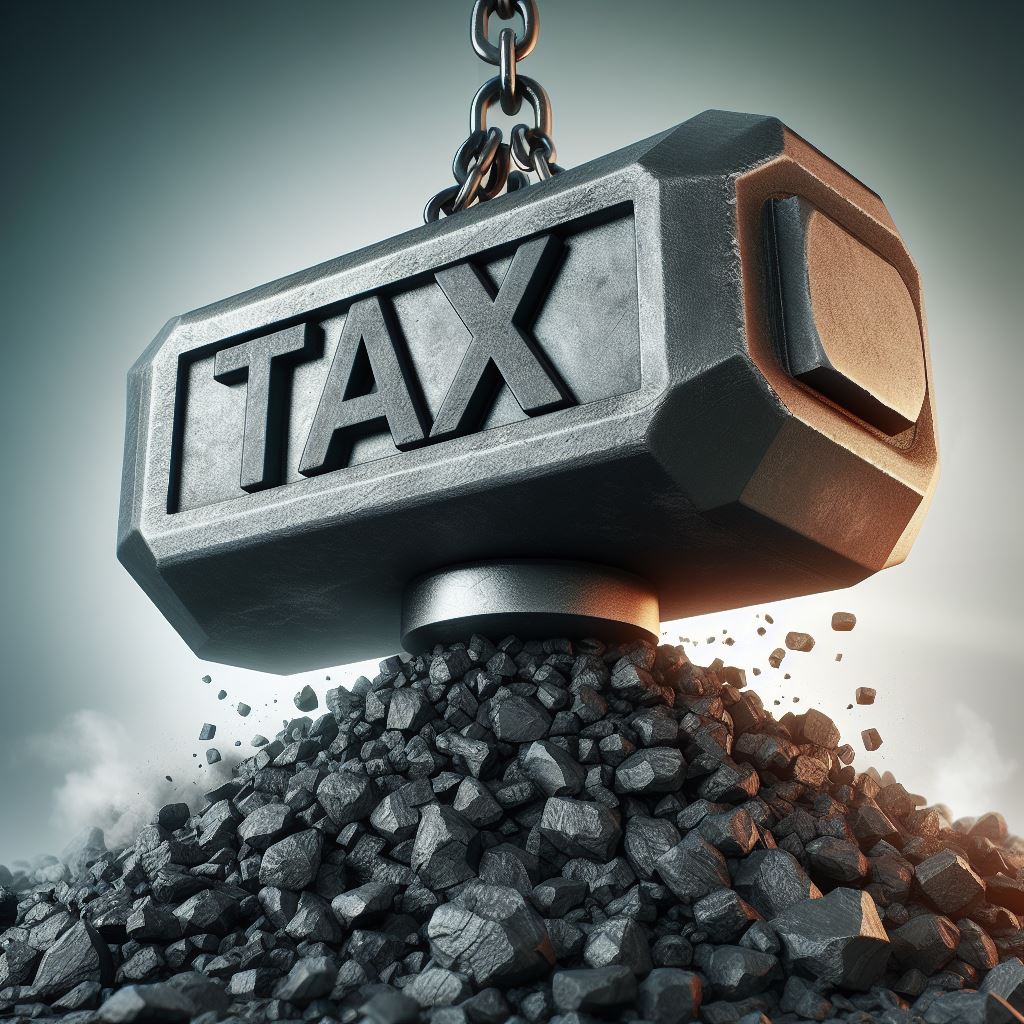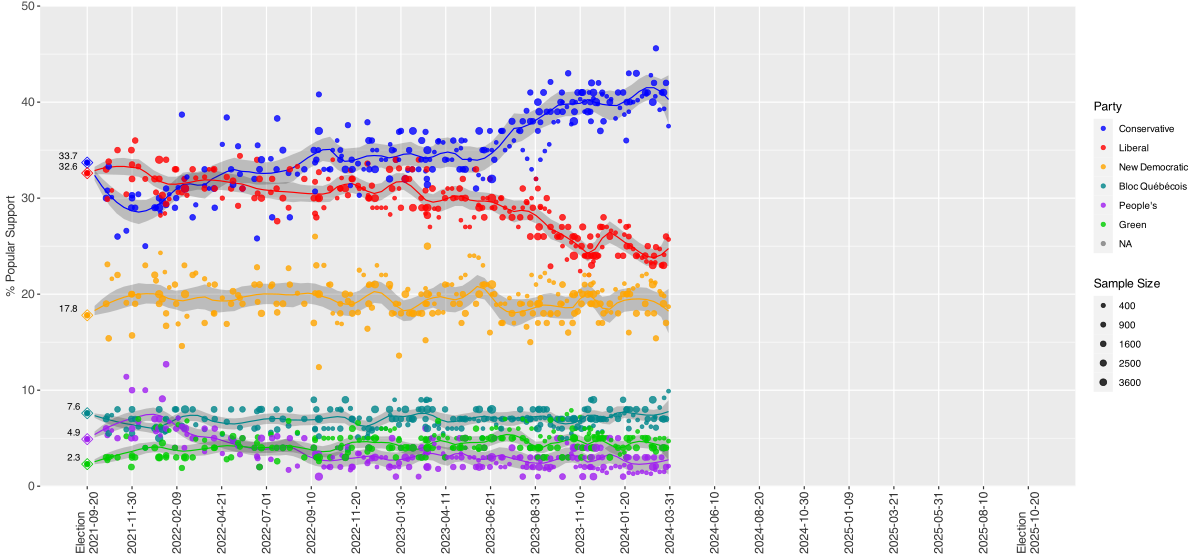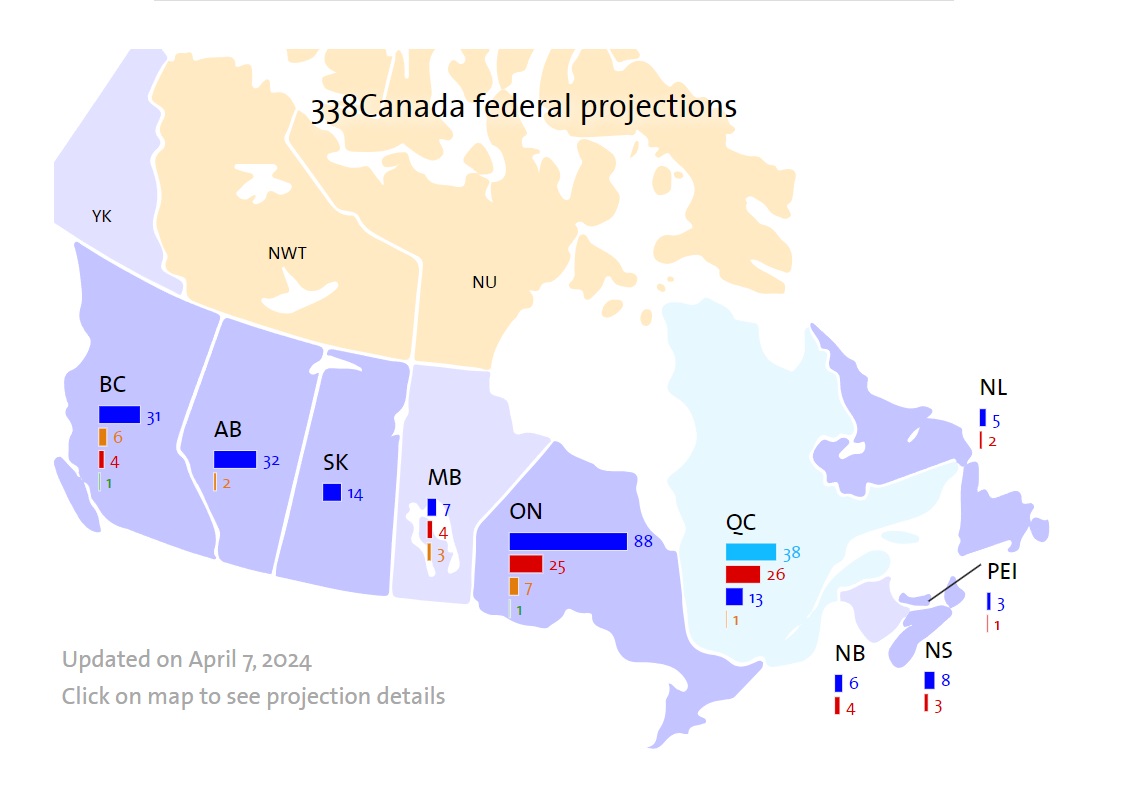International
Canada is rejecting the carbon tax wanted by Justin Trudeau

The carbon tax that Canadian Prime Minister Justin Trudeau imposed in 2019 is causing inflation, and the Conservative opposition has promised to remove it if they win back power. This is making the public more and more irate.
Canadians are growing more irritated with Prime Minister Justin Trudeau’s “polluters must pay” policy, which he has been pursuing for a number of years. For some time now, anger has been mounting in the North American country against the carbon tax. The main reasons for this are soaring inflation in recent years and the rise of the Conservative opposition, which has promised to abolish the tax if it returns to power.
And the odds of his return are increasing day by day, as You can see from the Polls

Political polls aggregator
The environmental policy of Canada’s prime minister has been muddled in recent months, as demonstrated by his reversal of a three-year exemption for heating oil.
This carbon tax is the Canadian government’s main measure for reducing the country’s greenhouse gas (GHG) emissions by 40–45% by 2030, in line with its commitments under the Paris Agreement.
While the levy will rise from 65 to 80 Canadian dollars per tonne (45 to 55 euros, 56 to 67 Usd) on April 1, seven provinces have already called for the increase to be suspended or cancelled. “At least until inflation stabilizes”, asked the province of Newfoundland, even though it is held by a Justin Trudeau ally.Among those opposed to the carbon tax, the mushroom plant in Osgoode, Ontario, has become something of a symbol. Speaking to AFP, producer Mike Medeiros assures us, with a bill to back it up, that he won’t be able to cope with the 23% increase.
His company, which employs 160 people and produces 90 metric tons of mushrooms a week, is a major consumer of natural gas, which is needed to maintain heat and humidity in its 50 growing chambers. “But by 2030, the cost of our carbon tax for heating alone will amount to half a million dollars. I can’t absorb that cost,” laments the grower.
This growing anger is playing into the hands of Justin Trudeau’s main opponent for the next election in the fall of 2025, Pierre Poilievre, who has been quick to make the fight against high living costs and the abolition of the carbon tax one of his major campaign arguments. In no politically relevant region is Trudeau’s Liberal Party ahead of the Conservatives.

Justin Trudeau’s parable is now descending. Only a deep repression of popular discontent can slow his fall. To what extent will he mock the democracies even with social media control?






